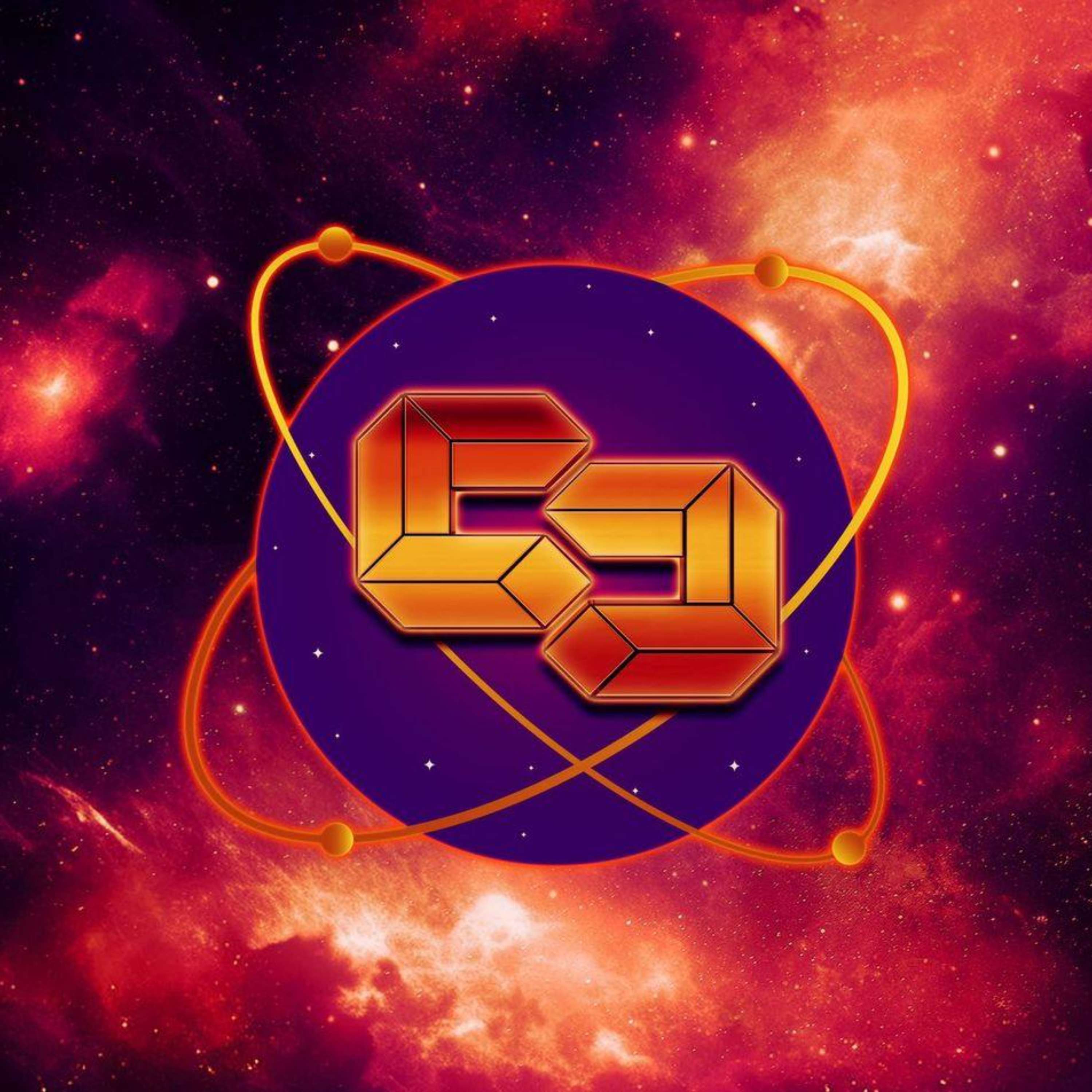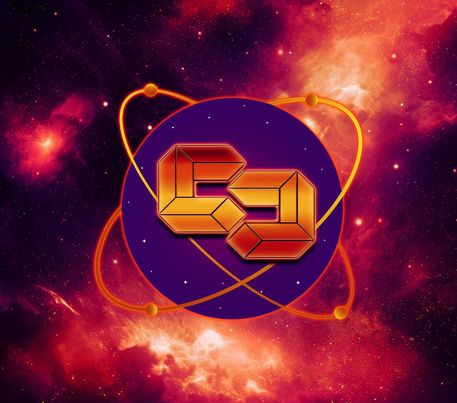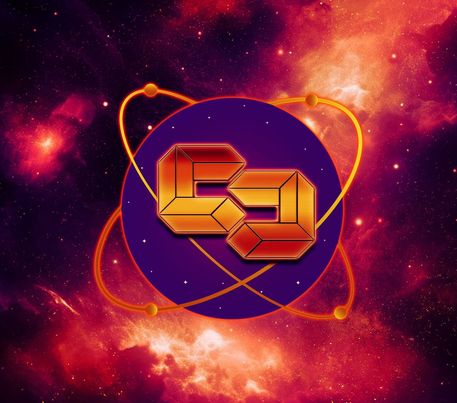Speaker 1 00:00:35 Hi, I am Ruby and I'm here with Jesse Alak of, uh, Polaris Rising, the Queen's gambit, and all sorts of other amazing books. This is The Cosmic Cafe, and I just wanted to say hi.
Speaker 2 00:00:47 Hi. Thank you so much for having me. No problem. I'm so excited to be here.
Speaker 1 00:00:51 I'm so excited to have you here. Um, can you tell listeners a little bit about you and you know, who you are and what you write?
Speaker 2 00:00:59 Sure. I am Jesse Mahalick. Um, I write Science Fiction Romance. I have three separate series right now. Um, the Consortium Rebellion series was my first traditionally published trilogy. It started with Polaris Rising. Um, then I have the Rogue Queen Books, which started out as serials on my blog, and then got packaged up into books that ebook buy. And I am currently writing the Starlight Shadow Trilogy, which starts with Hunt the Stars that came out in February and Eclipse the Moon that came out in July. And I am currently, the reason I'm a little, a little wonky is I'm currently in the middle of edits for Capture the Sun, which comes out next May <laugh>.
Speaker 1 00:01:43 Now, I just saw that on Twitter. Are you finished or close to finishing with that?
Speaker 2 00:01:48 I am close to finishing. I am doing, so I do an editing pass where I get all of the edits in and then I export it as an ebook. And I actually read it as an ebook, like on my iPad because it triggers a slightly different part of my brain. Mm-hmm. <affirmative>. And so I can catch a lot of, like, repetition that I don't notice, and I can catch some of those last typos and wrong words. So I am about 75% through that read through. I'm hoping to finish it tonight, but we'll see how that goes. Oh, wow. Um, 'cause I like to do it all in one day so that the whole book is fresh when I'm reading through it. So I'm hoping, hoping that that's today, but we'll just see. Now,
Speaker 1 00:02:27 Do you do any, um, like do you print it out at all after you've done the, the ebook editing? Or are you strictly, you know, on computers and on online?
Speaker 2 00:02:35 I am strictly on computers and online. I know some authors just love printing it out, and maybe I would if I wasn't concerned about the number of trees that would murder <laugh>. But, um, for me, for me, just switching to iPad is different enough than drafting on my computer that it helps, uh, as much I think for me as printing. So,
Speaker 1 00:02:59 Okay. Now let's talk a little bit about your, you know, your, your writing. You've made this journey. I think I read that you were a computer engineer, or you're, you are a computer engineer and now you're also a very prolific writer. Um,
Speaker 2 00:03:10 Can you uh, yes. You computer science, computer software. Gotcha. So, um, I went to college. I got my computer science degree, I software development professionally for eight-ish years, um, before I switched over to writing. And during that time, you know, I wrote fan fiction in college. I sort of dabbled along, I did several nano RMOs, which is the National Novel Writing Month, um, in November, I think, I don't know, I think
Speaker 1 00:03:39 So, yeah, editing
Speaker 2 00:03:40 Brain <laugh>, I'm pretty sure it's November. It's basically write 50,000 words in the month and like, just go. And so I did that a couple times and I was like, Hey, maybe I could do this writing thing. So, um, people are sometimes confused or, uh, maybe skeptical about software development and writing, but they're both very creative processes. Like you think computer science and computers and whatever is all logic left brain sort of stuff. And it is to a degree, but it's also creating something out of nothing and debugging and doing a lot of stuff. So they have a, they have a lot of similarities actually. And I, I love them both, but right now I am doing full-time writing.
Speaker 1 00:04:22 Gotcha. Well, that's amazing that, you know, you were able to make that jump. Um, it seems like, you know, your writing in particular has a lot of heavy world building and a lot of like, amazing character development, so I can see definitely a lot of parallels with, with software development to, to that. Um, now, so I have to ask, like, have you, you, you know, you're super prolific. You have seven books. Wait, you have three, three Universes, right?
Speaker 2 00:04:50 I have three universes. Two of them are complete with three books. Books each. So that's six. And then two of my other books are out and I'm working on the other one. So I have eight books out and I have a ninth book in the works right now.
Speaker 1 00:05:02 Oh, that's amazing. Um, now like, do you ever get writer's block? What, and if you do, what do you do? How do you get out of it? Um, I, I would love to hear more about that process.
Speaker 2 00:05:14 Yes. I think all writers get blocked in some ways. Not everybody calls it writer's block. Um, I basically get out of it by powering through and being afraid that they will ask me for their money back, my publisher. So it's basically sit down and write. If I'm really, really, really stuck, it's talk to my husband, talk to my writer friends, try and get some outside perspective. Sometimes just go for a walk or do the dishes, something completely mindless because my subconscious is churning on the, the solution in the background. There's a reason generally that you're stuck. Um, and it's something that maybe your subconscious sees but you haven't actually figured out yet. And so you keep writing, but it's not quite right and you don't know what it is. And so sometimes just getting a break so that you're doing something else completely mindless and that just lets your subconscious kind of percolate on it. And that will, that will sometimes get me unstuck. Sometimes I just have to like, just write stuff that I know it's just not gonna work to figure out exactly what the problem is. So mostly for me it's just continue forward and hope for the best.
Speaker 1 00:06:29 Now does that mean you're more of a pants than a plotter, or, or is there, is there a
Speaker 2 00:06:34 Plan? Absolutely, I am absolutely a answer. Um, there's, there is no plan <laugh>. Um, I generally, when I start writing, I know the opening scene and if I'm exceedingly lucky, I know kind of the middle, like the midpoint, um, of what's gonna happen. And then I have no idea what's gonna happen in between those two things. So I write to the midpoint and hopefully by the time I've gotten to the midpoint, then I know what's gonna happen at the end and I can write to the end. But generally when I start writing, I do not know how the books are going to end. Oh,
Speaker 1 00:07:08 Interesting. Now, what about the characters before you start writing? Do you kind of have a, uh, like a strong idea of who they are and what, what, you know, what their beliefs are, what they, what they represent, or, you know, is that something you discover with them along the way?
Speaker 2 00:07:23 Um, I know sort of the pillars of who they are, right? Like I know their, their basic personalities. Like, this person is honorable, this person is sneaky, this person is, you know, whatever. But the whole rest of it, I sort of figure out as I go and my books are very character driven. I actually start with the characters generally speaking. Um, and the characters then sort of flush out my worlds because it's like, how would the character react to this? How does the character see this universe that I've put them in? So I know more about the character when I start than the world, and it sort of builds from there.
Speaker 1 00:08:01 Yeah. I love how much the characters drive the story and, and, you know, propel things forward in your writing. It's just, it's, it, it makes such like entertaining reading and, and you know, such. Oh, thank you. It, it's amazing. Um, now, so you mentioned that the McQueen's gambit, you know, that those novellas they started as a serial in your blog. Um, can you talk a little bit about how, like, how they got packaged? 'cause they're also in KU now, right? I think,
Speaker 2 00:08:29 I don't think those are in ku. I talked with my agent about putting them in ku, but apparently shorter things don't necessarily do well in ku. So I don't think that they are in ku, but they, they are published through my agency, so they're self-published with kind of like a layer of agency help on top. Gotcha. Um, but the, the reason that they started basically is when I sold Polaris Rising, I sold it in, I believe I sold it in 2017 and it came out in 2019 mm-hmm. <affirmative>, which is a very, that's a very typical publishing schedule really. But that's also a long amount of time that I was going to try and build audience. Yeah. And when you have nothing <laugh>, one of the ways to potentially build an audience is to give away writing for free mm-hmm. <affirmative>. Um, and it also got people on my blog and looking at like, Hey, I have this book coming out eventually, if you like this story, maybe you'll like this other story when it comes out, please buy it <laugh>.
Speaker 2 00:09:33 Um, and so, and actually I've had really incredible support from my readers, so I am, I'm very, very thankful to them because I always thought like, if you give something away for free, like who's gonna buy it after that? But it turns out there are so many people, so many people are happy to throw a few bucks your way and, you know, help you out for something that you've given them that's given them hours of entertainment and then they turn around and support you as well. So it worked out really well. Um, it worked out, I mean, it worked out so well. I did it three times. Like all of the rogue Queen books started out as serials on my blog and then got edited and put up for put up for Sam, and then people were, people were incredibly supportive. So
Speaker 1 00:10:17 Now did they all lead into like the publication of another book? Or were they, um, the, so the first one did, but did the other two books lead into like other, um, other No,
Speaker 2 00:10:29 They weren't after the first one it was kind of its own universe own thing, and they weren't really tied to any Yeah. Really the, the way they got written is they were slotted in between my traditionally published books. So I would write a traditionally published book, and then I would write the serial and then I would write a traditionally published book. And that's one of the reasons that the serials kind of stopped in the last few years is because my schedule has been just jam packed with traditionally published books. And so, and with the pandemic and everything else that's been going on, I've found writing to be a lot more difficult lately, <laugh>. Oh. So I just don't have the extra time to write more serials. I would love to do it and I plan to continue it in the future, but I have to find that time to do it.
Speaker 1 00:11:14 Oh, I understand. And time is in short supply, so that makes total sense. And, um, my dog is, is, uh, crying off screen, so Oh, don't mind him. He, he wants to, he likes to, to do that when I'm on Zoom. Of course. <laugh>. Um, so, so this is a different universe you mentioned than you know, the other two, um, you know, universes that your, your books take place in. And I have kind of an an interesting question, I guess. So if you personally could live in any, in any of these universes, um, which would you live in?
Speaker 2 00:11:49 Ooh, that is a good question because they all sort of have, uh, pros and cons, let's say. Mm-hmm. <affirmative>, but I would probably live in the Starlight Shadows universe just because, um, in that universe there's an alien race called the Vol Offs that have like telekinetic, tele telepathic sort of abilities. And I just think that that would be like terrifying, but also incredible to just like witness once mm-hmm. <affirmative> and that universe, all of my universes, I try to end on like a hopeful upswing note because, you know mm-hmm. <affirmative>, I, I want to hopefully leave the world a better place than I found it even in my writing. Um, but editing book three, there is a fascist that actually gets punched directly in the face on the page. Perfect. And so, you know, um, that would be okay. Like, I would be, I would be okay to like stand and see that happen, Mike <laugh>,
Speaker 1 00:12:51 So. Well, that's perfect.
Speaker 2 00:12:53 Yeah.
Speaker 1 00:12:54 Um, so, you know, I think that's one of the, the hallmarks of romance, right. That, you know, it's a hopeful kind of happy ending. Yeah. Um, and you know, you've, you've talked a little bit about, um, and in previous interviews 'cause I, I, you know, did my research <laugh>.
Speaker 2 00:13:10 I love that. <laugh>,
Speaker 1 00:13:11 You, you've talked about kind of, um, almost the divide or threading the needle between like science fiction and, and romance. Do you still find that, um, that it's tricky? Or is it, is it something that's difficult for you or,
Speaker 2 00:13:24 Um, I wouldn't say it's difficult, but it is, it can be a little bit tricky because my books do tend to be a little more action plot heavy than romance heavy. So a lot of the notes that I get back from my editor are like, what is she feeling here? What are her emotions? Give me more of what's actually going on with the romance on page. So I do tend to layer that in more in edits than it actually comes out naturally. Um, but I read so much romance that it's sort of just baked into how I write stories. So I try to, I try to do a good balance of action and romance. Um, probably like Pure Romance readers will find it a little light on romance and then like, pure science fiction readers will find it too heavy on romance. But I, I have, I have an audience that seems to like the balance that I, that I have, uh, that I have created. And so I'm writing for them, I'm writing for me. So I, I I try and try and get the balance right. It's not always super easy, but I wouldn't say that it's like hard necessarily.
Speaker 1 00:14:31 I think that's wonderful. Um, so you mentioned a little bit about your action, and I noticed especially in this, um, you know, in, in this novella series, like there are some really intense fight, like fight scenes on the page. Yeah. And they're really cool. How do you do that? Because, you know, do you have, so you mentioned also before in another interview that you're like a board gamer. Do you, like, do you have models of, of the characters? Do you, how do you envision this? Because this is cool.
Speaker 2 00:15:01 Um, I do not, but I do watch a lot of action movies. Okay. Um, and so when you watch a lot of action movies, which is sort of, you know, like fake action, which is sort of the same action that's in my books, right. <laugh>, um, it looks good. It, it sort of seems good, but if you really get into the physics of it, like maybe it's not exactly how bodies would move mm-hmm. <affirmative>. Um, so I do a lot of like, visualization and if I get really, really stuck, like I will actually like stand up and be like, okay, like if somebody were to hit me here, like how do I, yeah. How would I dodge that or how would I do whatever? But generally it's a lot of visualization just based on, you know, decades at this point of sort of absorbing action movies. So I, I try and make it as clear as possible in my mind and hope that that comes out on the page.
Speaker 1 00:15:51 It totally does. Now, do you have a favorite action movie? Um,
Speaker 2 00:15:56 Oh,
Speaker 1 00:15:57 Or, or, you know, any movie that you've watched recently? Um,
Speaker 2 00:16:01 I guess
Speaker 1 00:16:02 That's inspiring <laugh>.
Speaker 2 00:16:04 I mean, yes, but like, anytime that somebody asks me like, do you have a favorite book? I have forgotten every book that I've ever
Speaker 1 00:16:11 Read
Speaker 2 00:16:12 In my entire life. <laugh>, um, one thing that's sort of action comedy that I really find myself coming back to a lot with Element. Um, it is sort of a sleeper hit, I think like, maybe, maybe it's, uh, more popular than I think, but Bruce Willis and, um, Mila Jovovich I think is in it. Like, it's amazing. It's just, it's just got perfect comedic timing. It's got lots of action. Like, it's very much a comfort watch. Like one of those things, like if it's on TV I'll be like, oh, I'm gonna sit here and watch five minutes of it, and then like two hours later I watch the entire movie. So <laugh>. Um, but yeah, I watched that, you know, of course the Matrix films that there was only the one of, unfortunately, I don't know, <laugh>, um, and Star Wars Firefly, just like all the, all the science fictiony sort of action as well. But, um, I mean, if I had to pick one, it, it might be the fifth element. I mean, it changes daily, but that's a, that's one that I always find super amusing.
Speaker 1 00:17:18 I need to go back and rewatch it because it's been a very long time since I've seen that. Yeah. Um, and now I want to, um, so I'm gonna turn the page at my question. So, you know, what's your writing process like? You know, you've talked a little bit about your editing, but you know, actually sitting down words on the page. Do you write eight hours a day? Do you, like, what does, what does a day look like for you of writing?
Speaker 2 00:17:44 Um, my day, I generally work eight hours a day, but it's not necessarily all writing. And I work eight hours a day because I share an office, a home office with my husband who sits right next to me. He's not there right now, but would be sitting right next to me <laugh>. And he has, you know, just a standard like nine to five job. So we sort of align our schedules, um, so that we're both working at the same time. And generally in the mornings I will do, if I'm not like super on deadline, I will do the admin stuff that needs to happen. So emails and website updating and like just, uh, social media posts, like the things that sort of are the business side of writing mm-hmm. <affirmative> that not everybody knows about. When you first get into writing, nobody tells you that you have to write a book and then also do all this other stuff on top of it.
Speaker 2 00:18:31 Yep. Um, so I'll do that in the mornings and then I'll write in the afternoons. And if I'm not on deadline, I try to hit a thousand-ish words a day. Sometimes it happens, sometimes it doesn't. Um, if I'm on deadline, it's write until you have as many words as you need for the day. <laugh>, I use Scrivener, um, which is a program that you, you write in and it it has a manuscript target that you can set mm-hmm. <affirmative>. So my books, I generally aim for a rough draft target of 105,000 words. Okay. Um, and you can tell it when it's due and it will calculate three words a day you need to write, which is both amazing and horrible because if you don't hit that number, then the next day it goes up. Yeah.
Speaker 1 00:19:18 It shows you your deficit too, right? That isn't there like a, a minus sign or something there that
Speaker 2 00:19:24 I think it will, I don't really use that <laugh>. I just use the, like, show me how many words I need to hit in order to get this book done by when I have to send it off to my editor. Um, and so I will write like, how for sometimes 12 or 14 hours. Like sometimes it is just a struggle to get words on the page. And then sometimes I'll write for two hours and I'll, you know, I've hit my goal and continue going, and I just keep going. I'm like, this is amazing. And those are the days that, you know, writers sort of live for. Um, but generally speaking, it's an eight hour day. Um, probably four to six of that is writing and the rest is admin. And then of course, just like, sort of any job where you're self-employed and you're responsible for all parts of it, you're thinking about it at night, you're thinking about it when you're going to sleep. Like your brain sort of is just always, always thinking about what's next. And so, but I really do try and I try to take the weekends off mm-hmm. <affirmative> that, that goes away when it's crunch time. Um, but just during, during normal non crunch time, Monday through Friday, eight-ish hours and then weekends off,
Speaker 1 00:20:39 That's a lot of writing. Um, yeah.
Speaker 2 00:20:42 But I'm a very slow writer. Like, some authors could do this and they would have a novel in like a week because, you know, they write so fast. Um, that is not me. I write very slow.
Speaker 1 00:20:55 Now. Do you do, do you do a lot of research before you write or as you write because you know, you have these vast, um, like you have these crazy political empires. You have it, it feels like, you know, it, it feels like a lot of history and a lot of, um, like, there's just so much world building. How do you, how do you keep that straight?
Speaker 2 00:21:16 Um, I do research as I write, which is one of the reasons why I am a slow writer. Um, and I have extensive notes in Scrivener. Scrivener has like a whole section that you can just put notes in that are not, don't go in the manuscript, but just keep everything straight. And so I have a lot of notes to try and keep all my world building consistent, all of my, like, naming and, you know, characters and plot threads because I, if you do write without an outline, you can sometimes sort of get into the weeds a little bit mm-hmm. <affirmative>, and then forget about something that you were, you were going somewhere but you didn't quite get there. So I try and keep notes of where I'm going and what needs to be wrapped up still, but really the research is as I go. And it can be a lot.
Speaker 2 00:22:04 I try to sort of do hand wavy made up things, but, um, and I'm doing that more as I sort of like grow as an author. Like originally I did a lot of research, like a lot, a lot, which sort of gave me a good foundation. But now I'm like, yes, faster than night travel works. Don't question it like <laugh>. So, and in the first few books I was like, actually looking up how this would be physically could potentially be like, physically possible within the, you know, the, the knowledge of physics that we have now. And now I'm like, yes, wormholes, <laugh>, like,
Speaker 1 00:22:44 Not, do you ever get readers, um, or fans that, you know, email you asking about how this stuff works or anything like that?
Speaker 2 00:22:52 I do occasionally, and the answer is generally I made it up like,
Speaker 1 00:22:57 <laugh>. That's fair. I'm
Speaker 2 00:22:58 Like, yes. I did this research into how wormholes could actually, you know, connect to different points in space. And I did do research into that. And for like the Polaris Rising, the consortium series, I did do research into how faster than light could potentially work, but when it comes down to it, I made it up.
Speaker 1 00:23:19 That's that's totally fair. Um, so, you know, I, when I presented this interview, I wanted to talk a little bit about the Rogue Queen series because I think, think it's so, you know, phenomenal. Can you tell people who, who don't know about Samara and Valentine? You know, like a quick, quick bio of the series, if you will?
Speaker 2 00:23:38 Uh, sure. Or
Speaker 1 00:23:39 The novella series. I'm sorry.
Speaker 2 00:23:40 Yeah, no, it's fine. Um, it is the story of Samara, who is the queen of a group of rebels and rogues. Um, and Valentine, who is the emperor of one of the two, like major, uh, empires that rule the universe. So there's two of them, they're at war and Samara is just trying to keep her people safe. Mm-hmm. <affirmative>, like they want no part of this war that the other two are waging. They're just trying to get by on their own. But then she gets a tip that ine has been captured. And so she is like desperate at this point because they've been cut off from all trade, they're starving, her people are really suffering. So she launches a scheme to get him back, and he thinks that he, she's there to rescue him, but she is really there to ransom him back to his empire.
Speaker 2 00:24:36 And so it sort of, the story sort of goes from there as their relationship grows and changes. And she figures out that maybe he's not like the evil person she thought he was. And he figures out that she's not just, you know, an assassin is out to murder him. But it was a really fun story to write. And I, I love that story. It's, it has a very special place in my heart because it is the first thing that I published. Like, it actually, the first book is a novella. So it, my debut novel is Polaris Rising. Mm-hmm. <affirmative>. But, um, the Queen's Gambit is actually the first thing that I had published. So
Speaker 1 00:25:14 Now what inspired that? Um, you know, what, was there anything kind of behind the, the book that, um, you know, kind of, um, I guess heavily inspired the characters?
Speaker 2 00:25:27 I don't think so. I mean, I draw inspiration from everything that I see mm-hmm. And read, right. But there's no, there's nothing that I could point to specifically to say this is what inspired this. Um, I knew I wanted it to be science fiction because I was leading into mm-hmm. <affirmative>, you know, a science fiction, traditionally published science fiction series. But I wanted it to be separate enough that it would be like its own universe and its own standalone work. Um, so there wasn't anything specific, but, you know, it's, it's inspiration from all the standard science fiction, like the movies, books. So I just sort of sort of just draw from everything and smush it all together and create something new. No,
Speaker 1 00:26:09 That's perfect. Well, is there anything we've, you know, we haven't talked about that you kind of want people to know about you or to know about your writing or anything you wanna say to, I guess, aspiring writers as well?
Speaker 2 00:26:20 Um, keep going. That is, that is my number one piece of advice to aspiring writers. Um, because sometimes it is a slog and sometimes it's not super fun, but persistence is really the key to publishing. Like, just keep going. You'll get better at writing. Um, you'll have a better chance of actually getting an agent and getting published. If you give up, you won't. But if you just keep going, um, and enjoy it, enjoy the journey. I know that that's like super cliche and whatever, but there is something special about writing for yourself that it doesn't go away when it becomes your job, but it changes slightly, like it becomes a job. And so try and hang on to that like joy of just creation, just creation. Write the book that you desperately want to read, and I guarantee there will be readers out there for it. So it may take time, you might have to do it yourself, but self-publishing is a booming business right now. So just, you know, write the book you desperately wanna read and someone will find it.
Speaker 1 00:27:36 Well, thank you so much for making the time to talk and I'm excited to read, uh, capture the Sun and, and thank you. Everything else you come up with.
Speaker 2 00:27:44 Well, thank you so much for having me, and if anybody wants more information, my website is dub dot jesse maholic.com and I'm also active on Twitter at Jesse Maholic. Thank
Speaker 3 00:27:57 You for listening. You can find the companion article for this podcast along with all the other news for those who like superheroes, science fiction and fantasy films, TV shows, and other
[email protected]. Have a great day.






